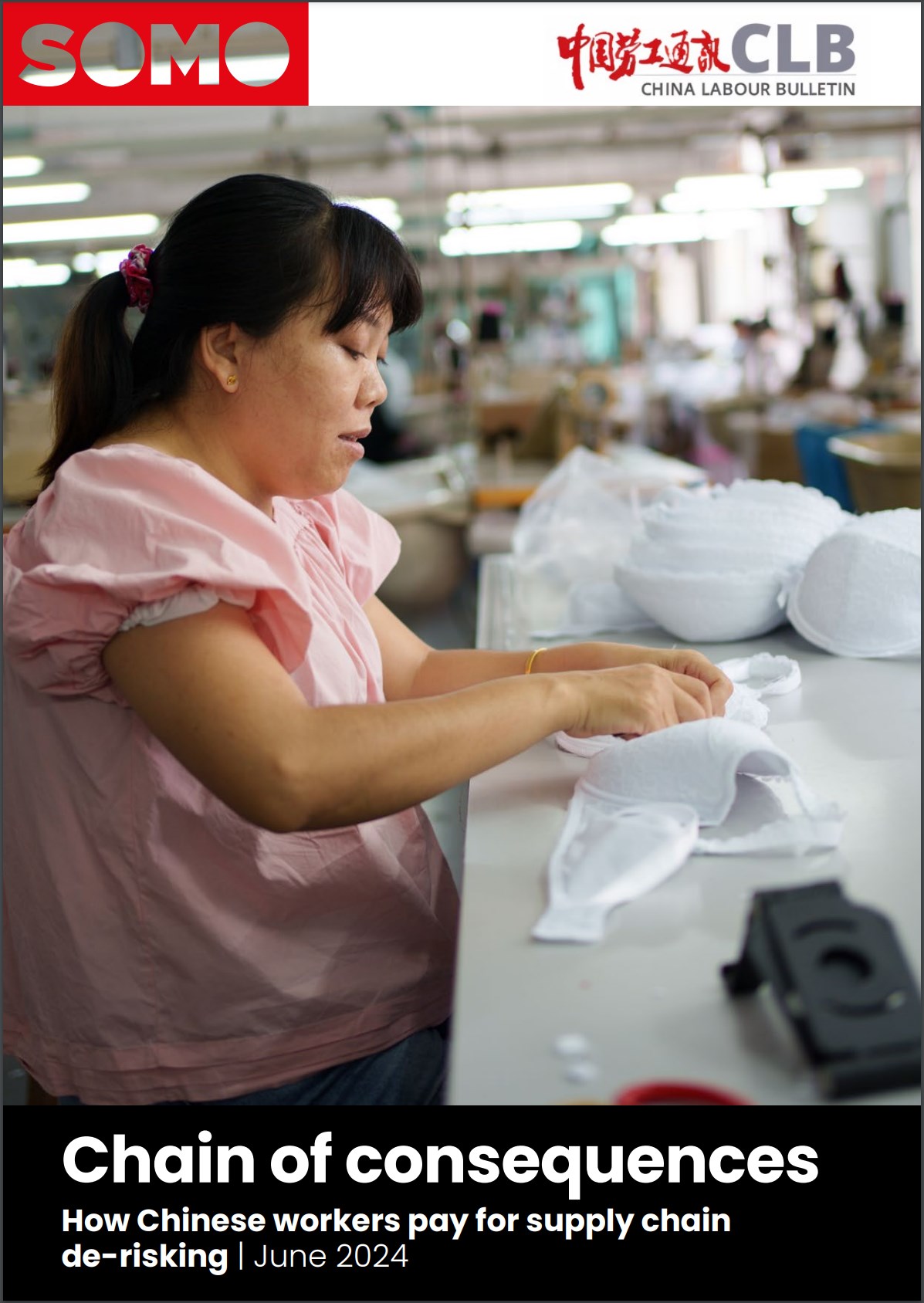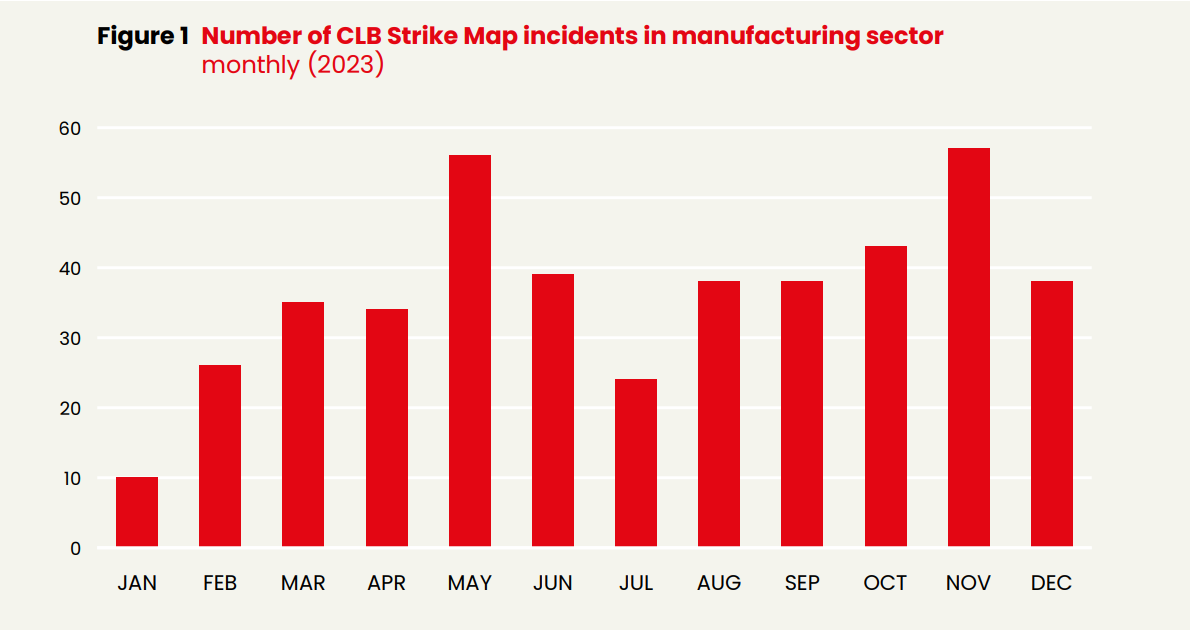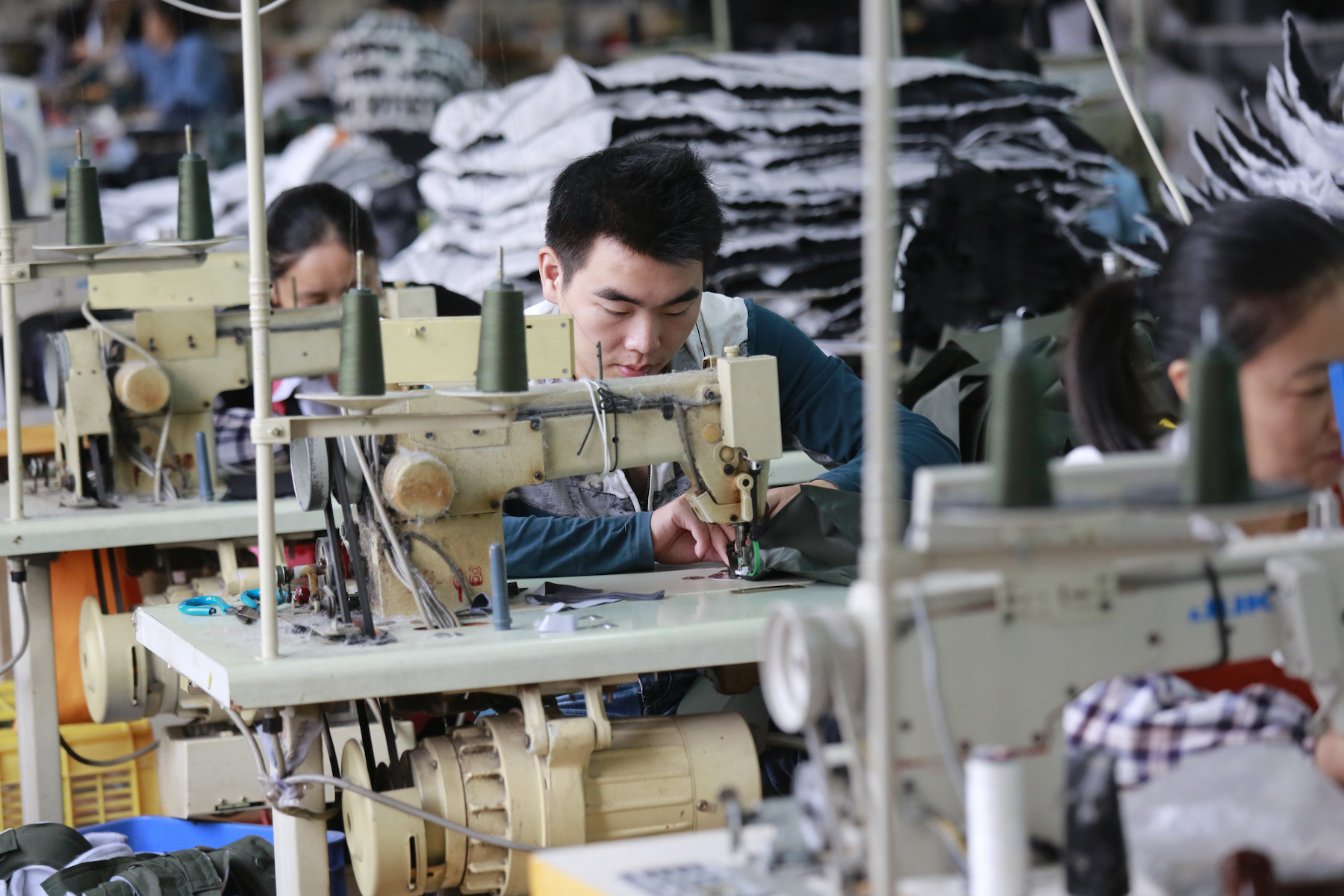Download the full report as a pdf here: Chain of Consequences–How Chinese workers pay for supply chain de-risking
On 26 June 2024, SOMO (Centre for Research on Multinational Corporations) and China Labour Bulletin (CLB) published a report about Chinese workers' struggles amid global supply chain shifts and the need for responsible business practices.
As major brands relocate production from China due to economic and geopolitical factors, Chinese workers in the apparel and electronics sectors are experiencing significant hardships, including payment struggles and job losses. The relocation of factories has led to reduced orders, wage delays, and inadequate compensation for the affected workers. The report emphasises the need for global brands to consider the human rights impact of their sourcing decisions and prioritise the well-being of low-wage workers in their supply chains.

Worker grievances amid changing supply chains
In 2023, CLB’s Strike Map recorded a tenfold increase in strikes and protest actions by Chinese workers in the manufacturing sector. Among the 438 incidents recorded, labour actions in the apparel and electronics sectors accounted for 55 percent. Of the apparel and electronics cases, 68 percent concerned unpaid wages, and 41 percent stemmed from factory closure or relocation. The two causes are often present simultaneously in the individual cases. Non-payment of wages not only increases the hardship imposed on low-paid workers but also violates China’s labour laws and the International Labour Organization’s Guiding Principles. In addition, when factories relocate, workers are often offered less compensation than they are legally entitled to. But what's even more concerning is the lack of information provided to these workers. In many cases, Chinese workers did not receive advance notice or sufficient information about factory closures, relocations, or the compensation they would receive, leaving them in a state of uncertainty and vulnerability.

With CLB’s incident data, SOMO uses company registries, brand-reported supplier lists, customs data, and various other publicly available sources to add layers of corporate and supply-chain information and show how many of these factories are linked to global trading networks. The project has been able to identify actual and potential links between the Chinese apparel and electronics factories recorded in the Strike Map in 2023 and many top international brands and retailers in those sectors.
Although the specifics of each case vary, many of the closures or relocations appear linked to decisions by brands or intermediate buyers to change their sourcing practices and reduce their overall reliance on China as a manufacturing base. The report highlights a few cases where strong correlations are observed.
The need for due diligence and the data resource
While there is nothing inherently wrong with companies examining their supply chain risks and diversifying their sourcing practices, corporations cannot simply shift the burden onto workers. The struggles Chinese workers face as multinational corporations de-risk their supply chains are a stark reminder that the global economic system needs an overhaul. It’s time to prioritise human rights alongside the bottom line.
Photo credit: humphery / Shutterstock.com
To effectively meet their obligations under the emerging human rights due diligence framework, global brands and retailers must recognise and address the impact of changes in their sourcing decisions on workers in their supply chains. They would also need to conduct due diligence checks upon notifications of possible violations.
CLB’s Strike Map provides a wealth of data from workers, and certain problems recur and can be identified as common risks. Also, the frequent renewal of data enables timely follow-up actions to urgent issues workers raise. The additional research by SOMO makes it possible to identify downstream buyers who might have leverage to help address the matter and facilitate timely intervention and accountability. The collaboration enables CLB and SOMO to shed light on trends and patterns, such as those highlighted in this publication, and thereby provide important insights for companies and regulators regarding labour rights in global supply chains. CLB and SOMO are working to enhance transparency in the supply chain, raise awareness about labour rights violations, and promote better protection for workers through improved due diligence and accountability measures.
